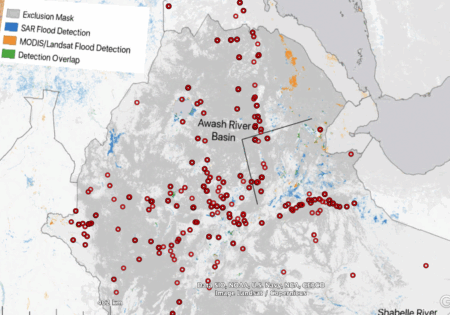In a recent post here I suggested that, despite frequent recourse to the comparison, genebanks are in fact not much like libraries, at least when it comes to deciding which of their contents can safely be jettisoned, or moved elsewhere. For this, librarians sometimes use the ejection criteria summarized by the acronym MUSTY: Misleading, Ugly, Superseded, Trivial and Your collection . But those are not really all that appropriate for genebanks, I argued in the earlier post.
Well, if not MUSTY, what?
Genebanks should of course have a policy for deciding what to keep, but the only published example I know of is that of the international genebanks of CGIAR, which can be find in the Guidance Note for CGIAR Genebanks on Improving Accession Management.
The note points out that maintaining accessions is expensive, and needs to be rationalized, but that…
…improved understanding of diversity now provides an opportunity to reconsider and improve the composition and curation of a collection, by identifying potentially similar or redundant accessions that could be removed and gaps in collections that could be filled to increase or better cover inherent diversity for the crops in question. This would result in germplasm collections that will better address the goal of the conservation and use of crop germplasm and the changing needs of the stakeholders, clients and users within a global system. Having alternative options for curation or retention for specific classes of accessions provides options for rationalization and increases the transparency of curation decisions for the providers and users of the germplasm.
So CGIAR genebanks use four classes of curation: Fully curated, Partially curated, Archived, and Historical. Each represents a somewhat lower level of management activity, and therefore investment of time and money. And what accessions might be candidates for moving, say, to archived status? That would mean they “are believed to be alive and are stored in the genebank under optimal conditions for long-term survival, but without monitoring or distribution, while a final decision is made on their future so that, depending on their longevity, they can still be brought back to the curated collection or donated to other collections.” According to the note, lower priority accessions that might be candidates for archiving include:
- Accessions that are considered genetically similar to other accessions.
- Accessions from the same collection site and timeframe that are genetically similar and not the result of dividing a mixed original sample into multiple distinct accessions.
- Accessions that are outside the collection’s mandate and are best managed by others.
- Accessions that, based on a justified process for prioritizing accessions for conservation, are not considered for long-term conservation as part of the crop genepool, for example, an accession may come from a part of the genepool that is considered to be over-represented in the collection relative to other parts of the genepool.
- Mixed accessions that are no longer true to the original or have identity problems from physical errors and contamination.
- Problematic accessions that are beyond the ability of the genebank to continue their maintenance.
- Accessions of unknown identity or origin and have no historical records.
So, not so much MUSTY, as, what, SCRAPPY maybe?
S – Similar to other accessions genetically
C – Co-collected (same site/time), genetically similar
R – Rogue (outside the mandate)
A – Abundant in over-represented parts of the genepool
P – Polluted (mixed, contaminated, or identity problems)
P – Problematic to maintain
Y – Yesteryear’s mystery (unknown identity/origin)
I hope it catches on.
